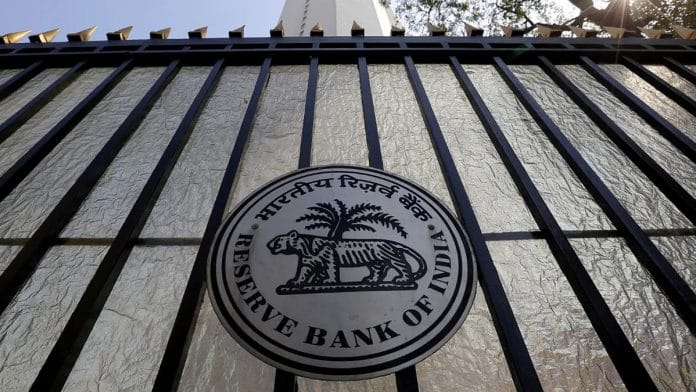New Delhi: One of the options before the Reserve Bank of India (RBI) regarding crypto assets is to let them “implode”, the central bank has said in a report released this week, even though it acknowledges this comes with some risk.
Overall, though, the RBI said one of the priorities under India’s G20 presidency is to develop a global framework on crypto assets which could include the possibility of banning unbacked crypto assets, ‘stable coins’ and decentralised finance altogether.
In the December 2022 edition of its ‘Financial Stability Report’ — released Thursday evening — the RBI noted that several incidents in the recent past have underscored the risks of the crypto industry, which have lent the central bank some insights on the industry and the way forward.
“The collapse and bankruptcy of the crypto exchange FTX and subsequent sell-off in the crypto assets market have highlighted the inherent vulnerabilities in the crypto ecosystem,” the RBI noted. “Recently, Binance, the largest crypto exchange, has also prohibited withdrawals of stablecoins on its platform.”
The RBI noted that the “implosion” of FTX was preceded by the failure of TerraUSD/Luna, an algorithmic stablecoin run on Celsius, a crypto lender, and the bankruptcy of Three Arrows Capital, a cryptocurrency hedge fund.
“The turmoil has provided several insights,” the RBI said. “First, crypto assets are highly volatile. The price of Bitcoin has decreased by 74 per cent (as on 14 December 2022) from its peak in November 2021. Other crypto assets have also experienced similar falls in prices and heightened volatility.”
The second insight, the RBI said, was that the collapse of stablecoin Luna was a reminder of how stablecoins that promise to maintain a stable value relative to fiat currency are subject to classic confidence runs.
A ‘stablecoin’ is so named because it tries to peg its value to another asset class, such as a fiat currency or gold, so as to mitigate the intense volatility often seen in the prices of other, un-pegged crypto assets.
Thirdly, the RBI noted that the fall of crypto exchanges such as FTX and Celcius showed how such trading platforms were carrying out other functions such as lending, brokerage, and clearing and settlement, which complicated their risk profiles.
“This exposed them to credit, market and liquidity risks disproportionate to what was necessary to discharge their essential functions,” the RBI said.
Also read: November saw a drop in inflation but some major states missed out. Here’s why
Crypto policy a G20 priority
The RBI said that there are a number of options being considered internationally to regulate crypto assets.
One option, it said, was to apply the “same risk-same-regulatory-outcome” principle and subject crypto assets and industry bodies to the same regulations applicable to traditional financial intermediaries and exchanges. Another option, which the RBI has previously favoured, is to ban crypto assets “since their real life use cases are next to negligible”.
The third approach, however, seems to be most in keeping with the Government of India’s attitude towards crypto assets.
“A third option is to let it implode and make it systemically irrelevant as the underlying instability and riskiness will ultimately prevent the sector from growing,” the RBI said.
However, the central bank did note that this third option is a risky one since the sector may become more interconnected with mainstream finance and so could impact the real economy. However, so far, it said that this interconnectedness was limited.
“Although the crypto assets market remains volatile, there have not yet been any spillovers onto the stability of the formal financial system,” it said.
The central bank did note that it is challenging to regulate new technology and business models after they have grown to a “systemic level” and so it is important for policymakers to design an appropriate policy approach sooner rather than later.
“In this context, under India’s G20 presidency, one of the priorities is to develop a framework for global regulation, including the possibility of prohibition, of unbacked crypto assets, stablecoins and DeFi (decentralised finance),” the RBI said.
(Edited by Smriti Sinha)
Also read: How India’s economy fared in a year of shocks, aftershocks & slowing global growth






